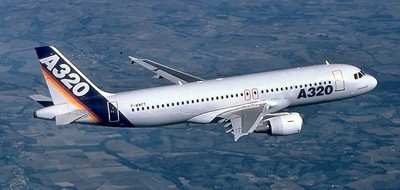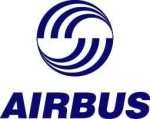Thu, Jun 24, 2010
An A320 Family Aircraft Leaves The Ground Somewhere Every 10
Minutes
The A320 Family of aircraft has achieved over 50 million take
offs and landings since the first model, the A320, entered
commercial service in 1988. Over this period, A320's and its
derivatives have carried in excess of five billion people. With ten
take-offs every minute, they have become a familiar sight at
airports and in the air.

"One of our A320 Family aircraft takes off every six seconds
somewhere around the world and they have carried more than five
billion people, which is a huge achievement", said John Leahy,
Airbus Chief Operating Officer, Customers. "We are investing at
least 100 million euros a year in the A320 Family in order to
maintain it as the world's most modern and fuel efficient aircraft
family that will continue to bring people together for the decades
to come".
Painted in some 250 different airline colours, A320 Family
aircraft can be found 365 days a year at the world's busiest and
largest airport hubs. There are ten operators today with more than
100 A320 Family aircraft in their fleets. But Airbus says
the A320 Family aircraft can also operate at smaller airports
and even in some of the most remote areas of the globe such as the
Kingdom of Bhutan in the Eastern Himalayas.

Airbus says this can be partly attributed to its $122 million
annual investment that keeps the A320 Family technology state of
the art, maintaining it as the most fuel efficient and modern
aircraft family in its category.
The company says one illustration of the A320 continuous
improvements are the new fuel-saving Sharklet wing tip devices
launched by Airbus at the end of 2009. These devices will enhance
the eco-efficiency and payload-range performance of the A320, and
are expected to reduce the fuel consumption by at least 3.5 per
cent over longer sectors. This corresponds to an annual CO2
reduction of around 700 tons per aircraft. Starting with the A320,
the Sharklets will be available as an option on A320 Family models
(A318, A319, A320 and A321) from the end of 2012.
Airbus says it has sold 6,500 of the aircraft, and has
delivered more than 4,300 to some 310 customers and operators
worldwide.
More News
With Testing Soon Complete, Launch Preparations Begin in Earnest Sierra Space's Dream Chaser has been put through the wringer at NASA's Glenn Armstrong Test Facility in Ohio, but w>[...]
Takeoff Roll The process whereby an aircraft is aligned with the runway centerline and the aircraft is moving with the intent to take off. For helicopters, this pertains to the act>[...]
“We’re proud of the hard work that went into receiving this validation, and it will be a welcome relief to our customers in the European Union. We couldn’t be mor>[...]
"Aircraft Spruce is pleased to announce the acquisition of the parts distribution operations of Wag-Aero. Wag-Aero was founded in the 1960’s by Dick and Bobbie Wagner in the >[...]
IDENT Feature The special feature in the Air Traffic Control Radar Beacon System (ATCRBS) equipment. It is used to immediately distinguish one displayed beacon target from other be>[...]
 Sierra Space Repositions Dream Chaser for First Mission
Sierra Space Repositions Dream Chaser for First Mission ANN's Daily Aero-Term (05.10.24): Takeoff Roll
ANN's Daily Aero-Term (05.10.24): Takeoff Roll Aero-News: Quote of the Day (05.10.24)
Aero-News: Quote of the Day (05.10.24) Aero-News: Quote of the Day (05.11.24)
Aero-News: Quote of the Day (05.11.24) ANN's Daily Aero-Term (05.11.24): IDENT Feature
ANN's Daily Aero-Term (05.11.24): IDENT Feature




